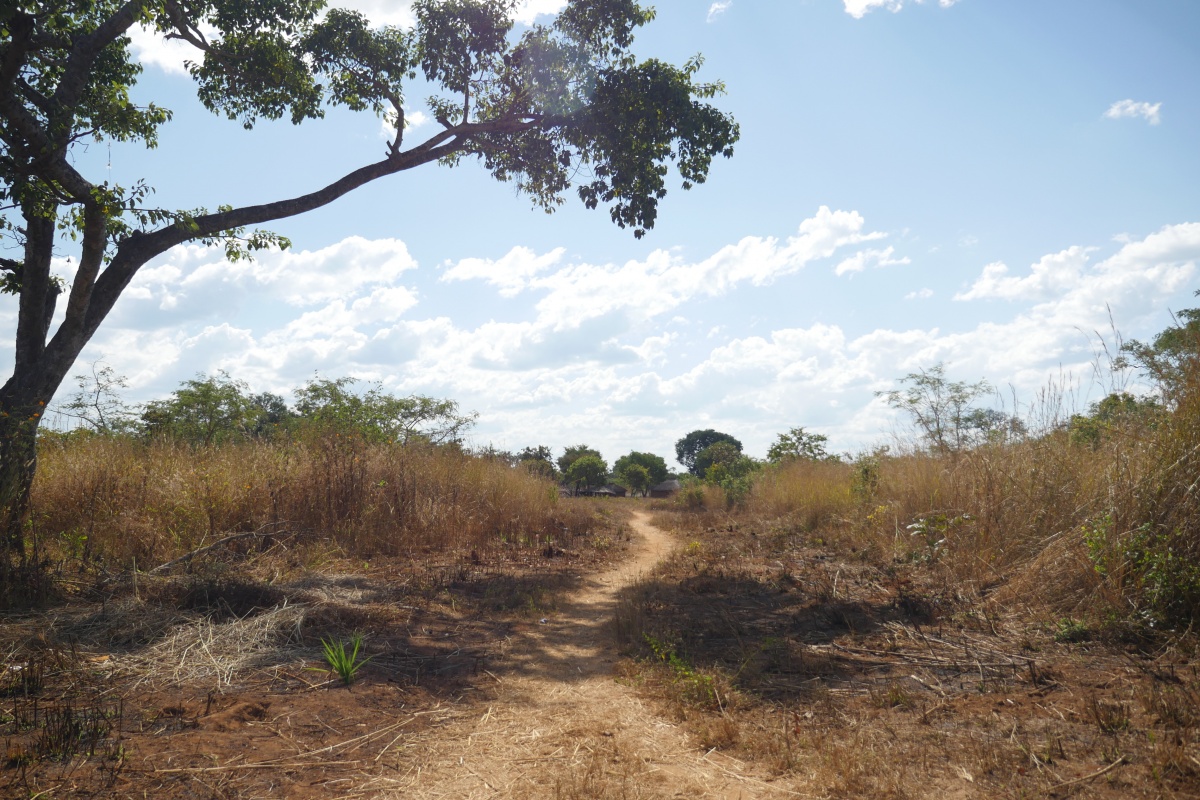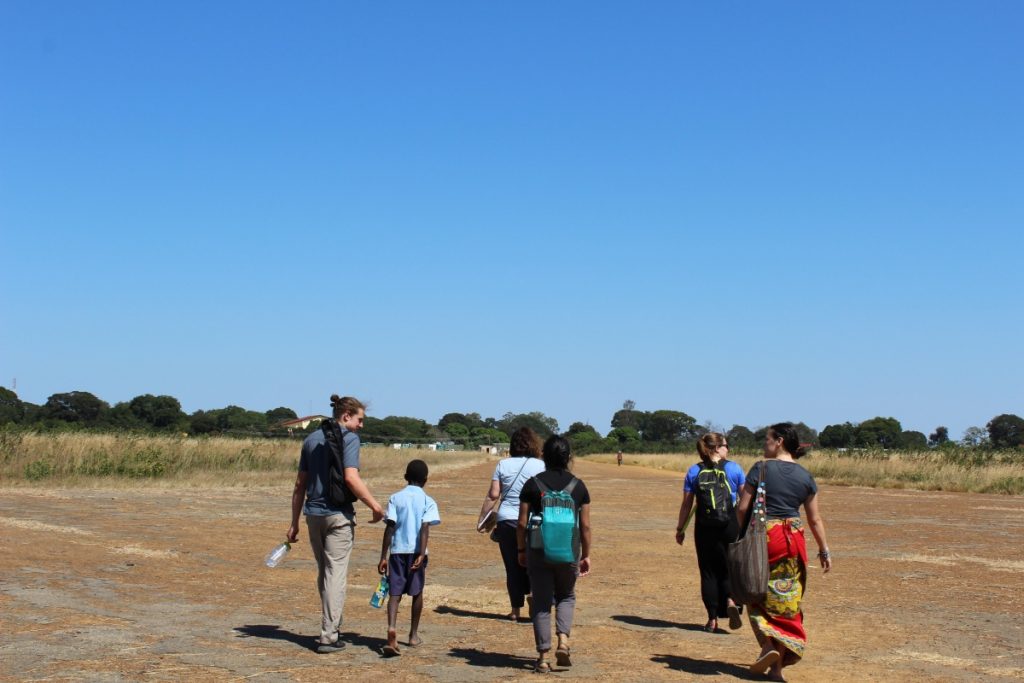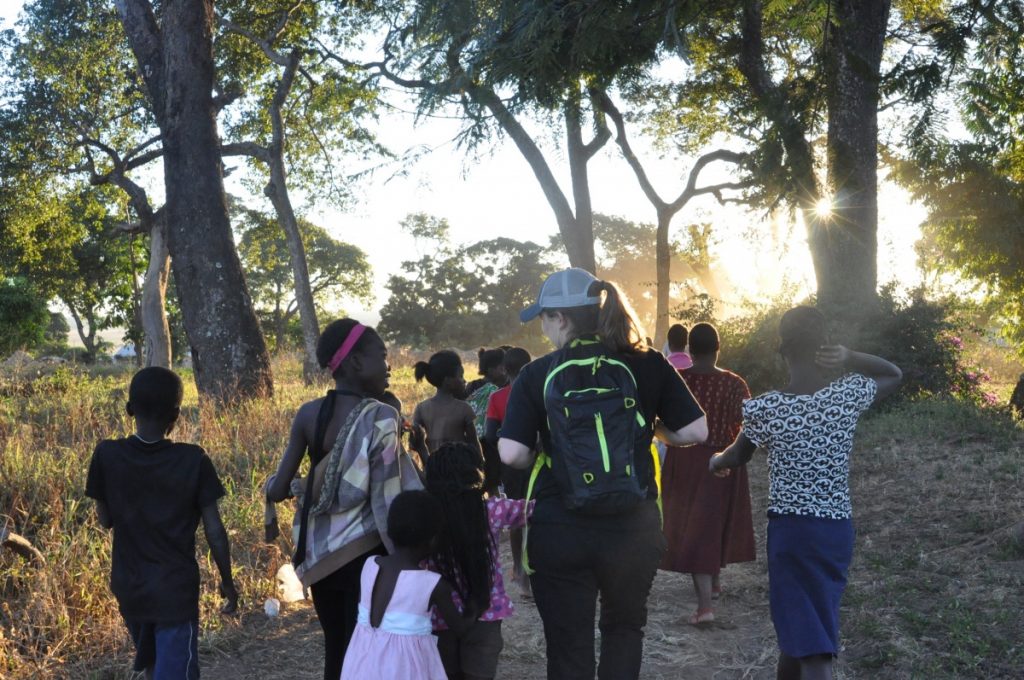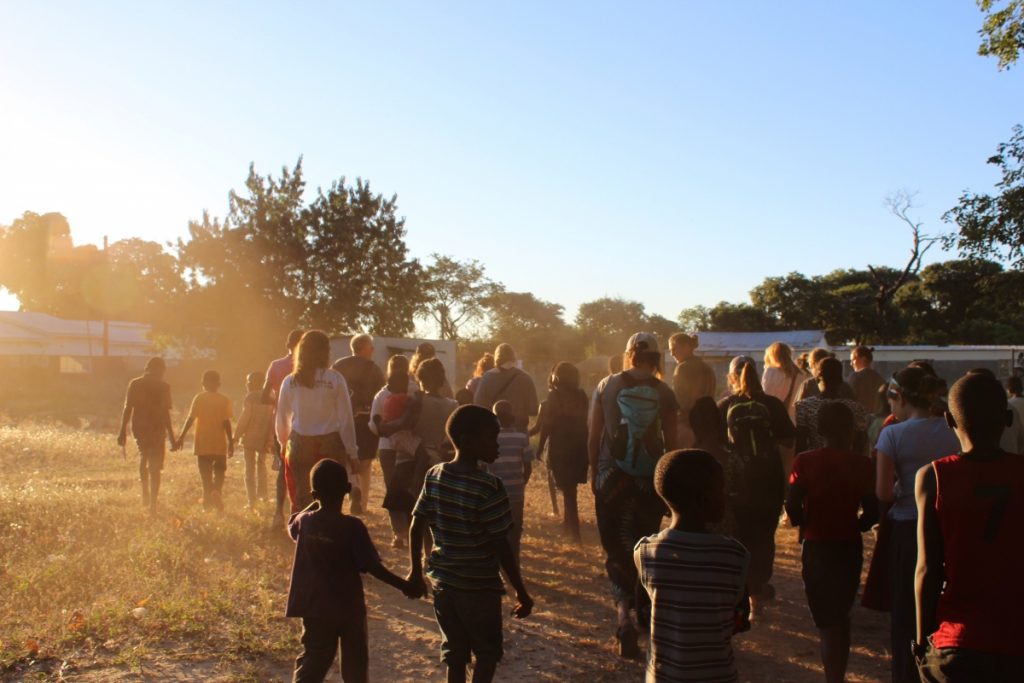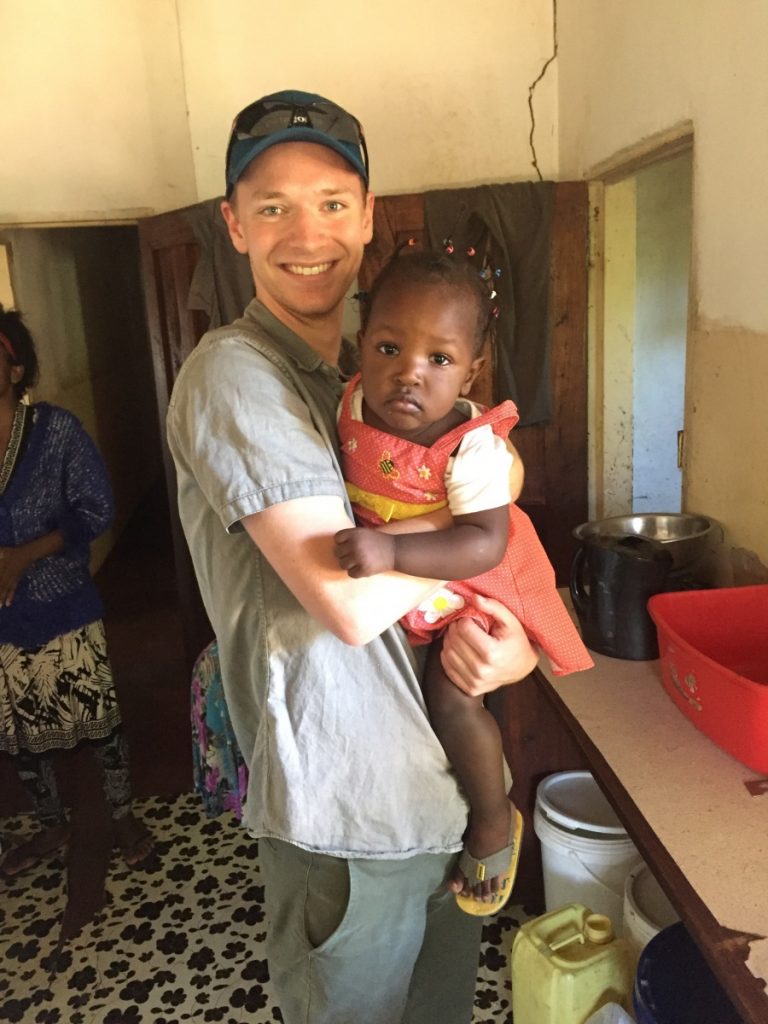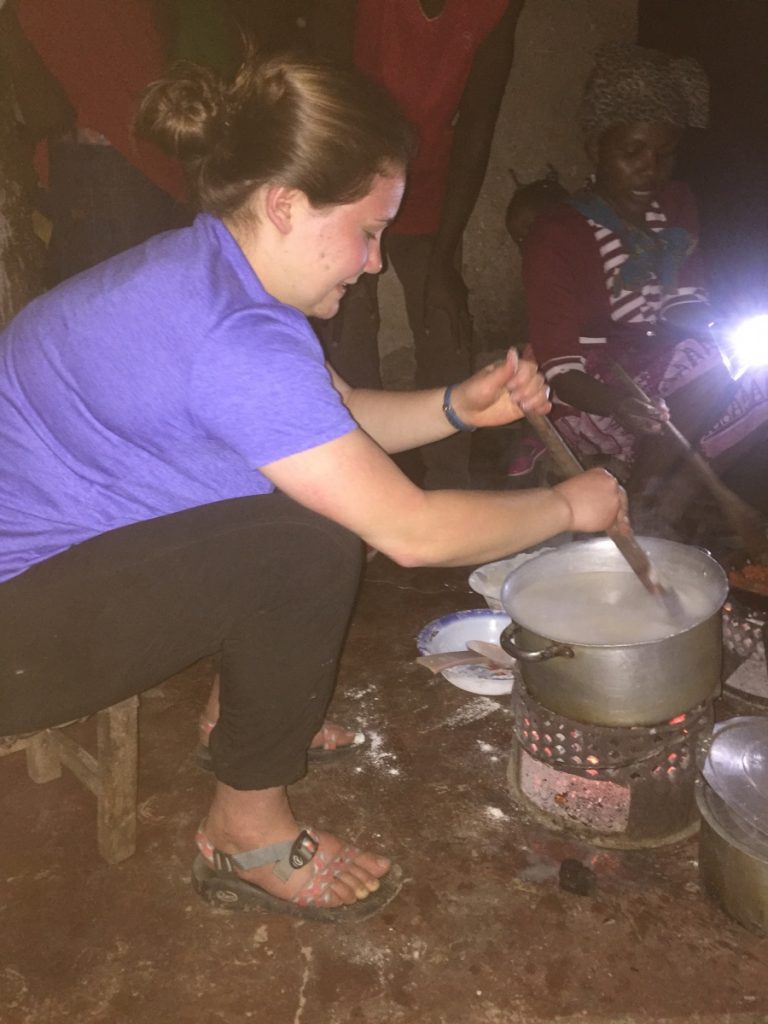Henry Nouwen beautifully wrote, “Our life is a short time in expectation, a time in which sadness and joy kiss each other at every moment. There is a quality of sadness that pervades all the moments of our life. It seems that there is no such thing as clear-cut pure joy, but that, even in the most happy moments of our existence, we sense a tinge of sadness…behind every smile, there is a tear. In every embrace, there is loneliness. In every friendship, distance. And in all forms of light, there is the knowledge of surrounding darkness.”
These words perfectly embody the way I perceive the human experience of living life. And these words also hold true for the way my heart feels here in Zambezi. This place makes my spirit sing and dance in ways I have never felt before. But there is a heaviness that lingers. It tip-toes around my heart. Yet with every step, a sharp pang fills my chest, and for a moment, I lose my breath.
“Suuuuuunn-y.” Mischel’s sing-song voice fills my ears every time he calls my name.
“Yeeeees?”
“Can I ask you something?” His mischievous smile is so big that it crinkles the corners of his twinkly eyes.
“Anything.” I give my best cheesy wink. He laughs, but after a moment, he intently looks at me, and whispers into my ear.
“Will you remember me?”
When those words escape his lips, I feel my heart lift upward in an indescribable way. There is a certain immeasurable warmth that inches its way from my head to my toes—it makes me feel as if I am almost floating. As I look deeply into his beautiful brown eyes, I am overcome with a sense of longing to understand him. Truly understand him. But in that moment, I see in Mischel’s eyes the same fervent longing I feel inside of me. A longing to be understood. A longing to be remembered in the same way I hope to be remembered.
My fears have chased me to Africa. I am consistently filled with doubts and insecurities that have plagued me long before I got onto the plane. And because I know that my worry that I am never quite ‘enough’ has seemingly found a way to creep into every aspect of my life, I have also come to truly understand that the greatest obstacle to love is the hidden fear of being unworthy of such love. There is a fear that all humans experience that amidst our most difficult nights, we may never amount to more than our suffering. I find that this fear, a valid fear and one that we may all continue to face, is extinguished when we recognize that love—true love—lifts us up out of what we think we deserve and recognizes the intrinsic value in ourselves—that we are worthy of love independent of everything we do.
During my time here, I have seen and heard a battered community that still struggles to breathe because of what was taken from them centuries ago. And this numbing reality will never become easier to process. How could anyone possibly dare to take away the breath of a people that God so lovingly breathed life into?
Father Baraza told us that when the missionaries first arrived in Africa, the missionaries had the bible, and the people had the land. After the missionaries prayed over them, the people opened their eyes. The missionaries had the land, and the people had nothing but the bible. Stories like this make me fear religion and feel such anger that I can hardly speak about how ashamed I feel. But within a few days, Zambezi has gently pushed me to take my focus off of the circumstances that have been imposed upon its people and instead fixated on a different idea—the life-giving spirit of Zambezi. I have struggled all my life with not letting my suffering define me. And so I refuse to let Zambezi become defined by the suffering that happens within the community. To make the hardships of a people become their single story is to rob them of their colorful, fruitful, beautiful identity. If I could dare to describe the spirit of Zambezi through a single image, it would be of the moon. And if I were to have a conversation with this spirit, I would imagine it would go somewhat like this:
Watch me shine, the moon says. Amidst the darkness, the fear and the pain that the night holds—that by its very nature is powerful and consumptive—lies the most effervescent light, in peaceful kinship with millions of stars that are bursting with passion at its edges—allowing them to shimmer and glow like never seen before. I am resilient. I am strong. I am beautiful. I am light.
I am not here because of myself. I am here because thousands of intersections have intertwined the fabric of my life with the lives of others. In the words of a wonderful human being I know, “Our lives have been braided with love. Infused in our breaths is connection.” To be quite honest, I have not really done anything in Zambezi. I’ve quickly realized that I’m as useful as a rock when it comes to doing just about anything. And I’ve come to see that if one asks me about my accomplishments on this trip, I won’t be able to give an answer. Ahh, accomplishments…so often, they may make us feel enough, but could it be that we are not defined by what we have done? And this is the belief I desire to hold onto in everything I do—the notion that our worth lies not within the things that we do and accomplish but simply within our very being.
So I will do the only thing I am unmistakably compelled to do—the only thing I imagine may make a small difference. I will strive with all of my heart and my soul to gratefully devote myself to the lifelong vocation of love…a love so effervescent, it inspires us deep within, breathing passion and life into our lungs, touching the untouchable parts of ourselves, burning our heart with the fire of a thousand suns, bringing us endless hopes, and never letting go of the dream that the day will come when every single person can carry this kind of love within their souls. It speaks, “I love you not because of anything you have done, but simply because of who you are.”
At times, I feel like a zebra walking in a pack of lions. Sweet, joyful, hospitable lions. J But regardless, I find myself consistently trying to be myself within a community where I feel like I could not possibly stand out any more than I do—and then I just get lost within the vast differences that lie between us. But in the words of Nouwen, “Every human being has a great, yet often unknown, gift to care, to be compassionate, to become present to the other, to listen, to hear, and to receive. If that gift would be set free and made available, miracles could take place.” It is ubundu, the essence of being human (an essence so evident in the Zambezi community)—to be kind, compassionate, and loving, because we understand that we are a people who belong to each other. Here in Zambezi, every single afternoon, a relentlessly jubilant crowd of children call us to watch the sun fall. We hold hands, and we run towards the sunset, our breaths taken away by the beauty of the sun, yet ready to embrace the night with open arms.
Hafiz:
Admit something.
Everyone you see you say to them,
“Love me.”
Of course you do not do this out loud,
Otherwise
Someone would call the cops.
Still though, think about this,
The great pull in us to connect
Why not become the one
Who lives with a full moon in each eye
That is always saying
With that sweet moon language
What every other eye in this world
is dying to hear
I love you. Take my hand. Let us run towards the sun, the moon, and the stars together.

the sunset over the zambezi river
thanks josh 🙂
Kisu Mwane,
Sooyoun Park, Class of 2018
To Mom and Dad, I am doing well. You don’t have to worry about a single thing. I am thinking about you everyday, and I love you so much. Stay healthy.
Juju, I am so excited for you to graduate, my dear. I am praying for you and thinking about you. Embrace these last few days and get ready to spread your wings and fly. I am so proud of you—know that I am always with you.
Birdie, in a couple of hours, it’ll be your birthday, and I’ll be doing a midnight celebratory dance here in Zambia underneath the stars. The moon here is the loveliest, and I think of you every time I see this breathtaking night sky.
To all my dear friends and Zags—wherever you are, I am thinking about you and missing you deeply. Remember that we are always looking at the same moon, no matter where we are. And in the same way, if we all hold hands, we can all run towards the same sun.
P.S. Sunny, or Sun has become my name amongst the children here, and strangely…I am immensely grateful for it <3







